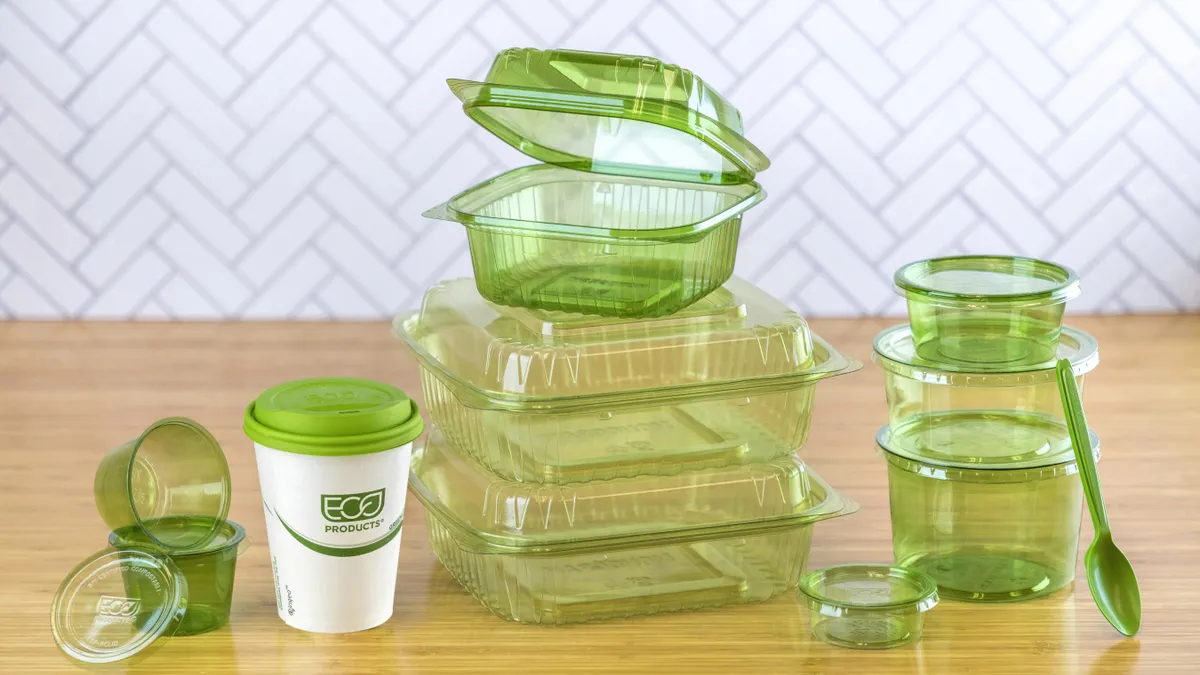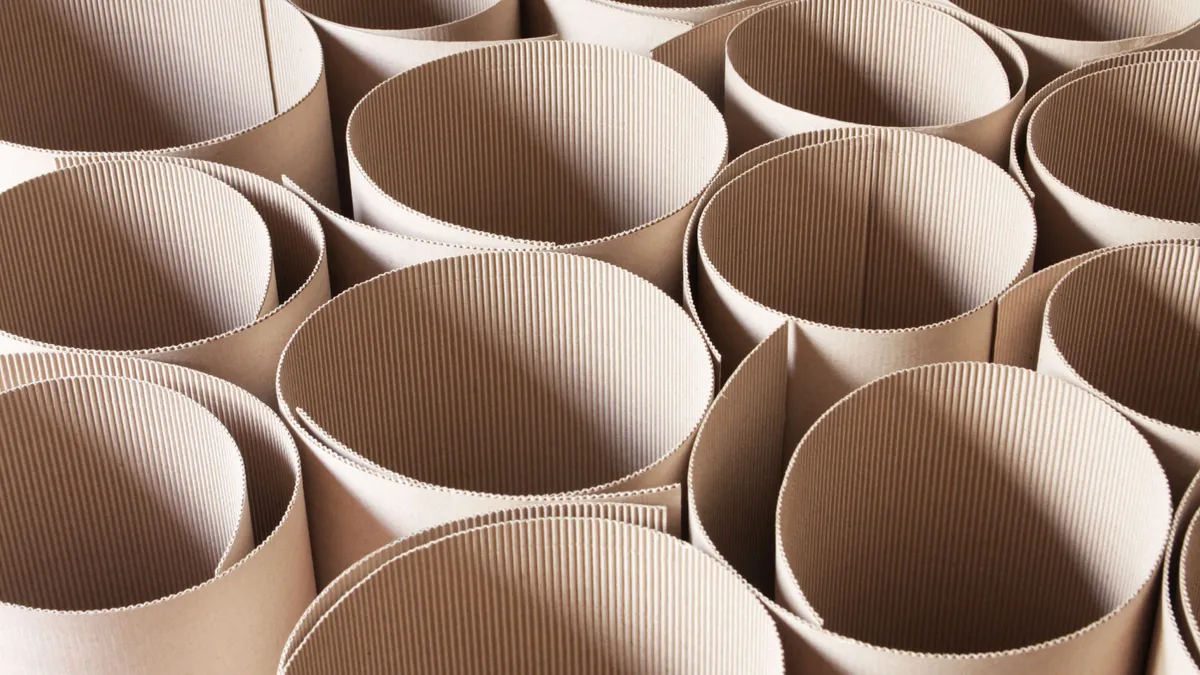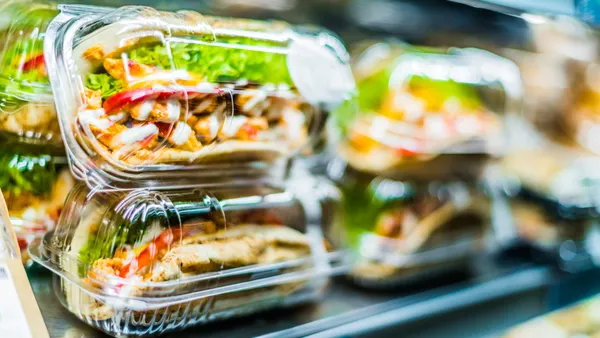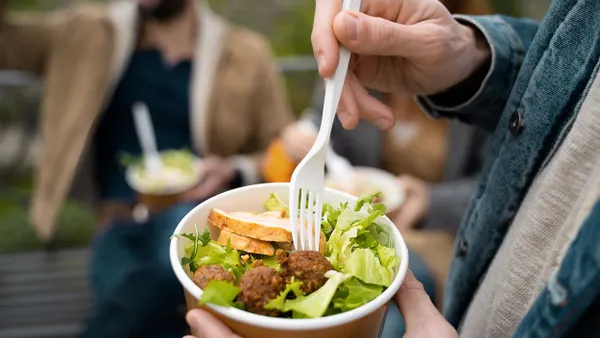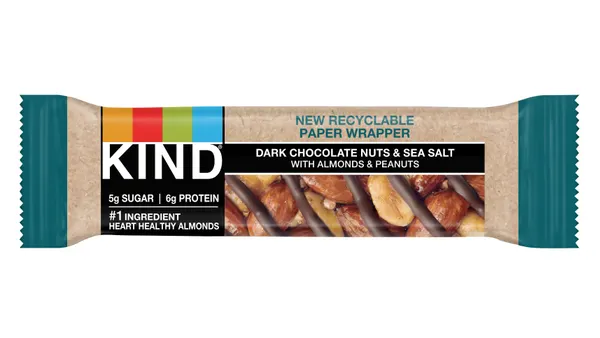Novolex in 2023 reversed a backslide in PCR use from the previous year, according to its 2023 sustainability report released Thursday. The proportion of products the company produces that were recyclable, compostable or reusable also jumped, after having stagnated the previous year.
The plastic, fiber and bio-based packaging manufacturer’s postconsumer recycled fiber use increased to 52%, up from 49% in 2022. During the latter year it dropped from 51% in 2021. Also in 2023, PCR resin use increased from 3% to 4% while postindustrial resin use increased from 18% to 19%; 75% of Novolex’s resin use was virgin material in 2023, down from 77% the previous year.
Overall, the company lost ground on the amount of raw materials that came from renewable, bio-based or PCR sources. That fell to 47% in 2023 from 49% in 2022 and 2021. “This 2% shift was due to changes in our production mix,” according to the report. Novolex’s raw materials include bio-based resins, PCR paper and resins, virgin paper and resins, aluminum, sugarcane (bagasse), wood and bamboo.
“We are at the forefront of using bio-based resins and renewable materials in a growing number of products,” the report states. “We can now use these materials in several of our facilities to produce hinged containers, cups, straws, can liners and produce bags.”
In 2023, Novolex’s revenues from products that were recyclable, compostable or reusable reached 84%, up from 2022 when the number stagnated at 78%. The company credits its product innovations as well as a “recategorization of additional durable goods.”
In 2023, Novolex partnered with Nova Chemicals on a new plant in Indiana that produces mechanically recycled polyethylene film. The project is expected to produce 100 million pounds of recycled film annually under Nova’s Syndigo brand.
On the compostables front, Novolex said a growing number of its products are made from molded fiber, which is derived from materials such as bagasse, bamboo, wheat straw and miscanthus. Specifically, its subsidiary Eco-Products launched Veridian, a line of compostable containers, cups, lids and cutlery. Eco-Products also partnered with the Portland Trailblazers in 2023 to provide reusable cups that fans can drop at collection points throughout the stadium.
“As a whole, investments in reusables reflect the Novolex commitment to offer our customers an ever-broader choice of more sustainable packaging for different settings,” Paul Frantz, president of food and delivery, said in the report. “There is still much to be learned from reusable packaging and reuse systems, and Novolex aims to be at the forefront.”
In 2023, Novolex recycled 75% of the waste it generated from operations and sent 23.5% to landfills; comparatively, in 2022 it recycled 81.4% of waste and sent 17.9% to landfills. The report notes that the 2023 numbers also include operations in Canada, whereas the 2022 data covered facilities in the U.S., U.K., Mexico, Ireland and the Netherlands, but not Canada.
The company’s scope 1 and 2 greenhouse gas emissions also dropped in 2023 after having risen in 2022. From 2023 to 2022, scope 1 and 2 emissions dropped from 521,636 to 471,172 metric tons of CO2 equivalent, a 9.7% decrease; that counters the nearly 6% increase from 2021 to 2022. Novolex aims to achieve a 30% GHG emissions reduction per ton of production by 2030 from a 2019 baseline, a goal it put in place in 2022 after achieving its previous goal of lowering GHG emissions 20% per ton of production by 2025.



